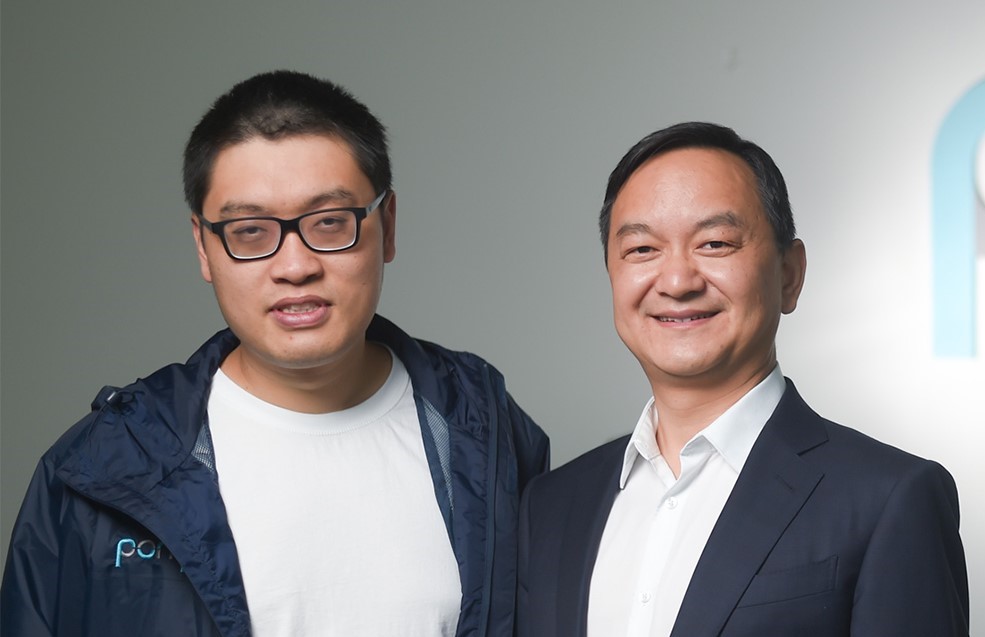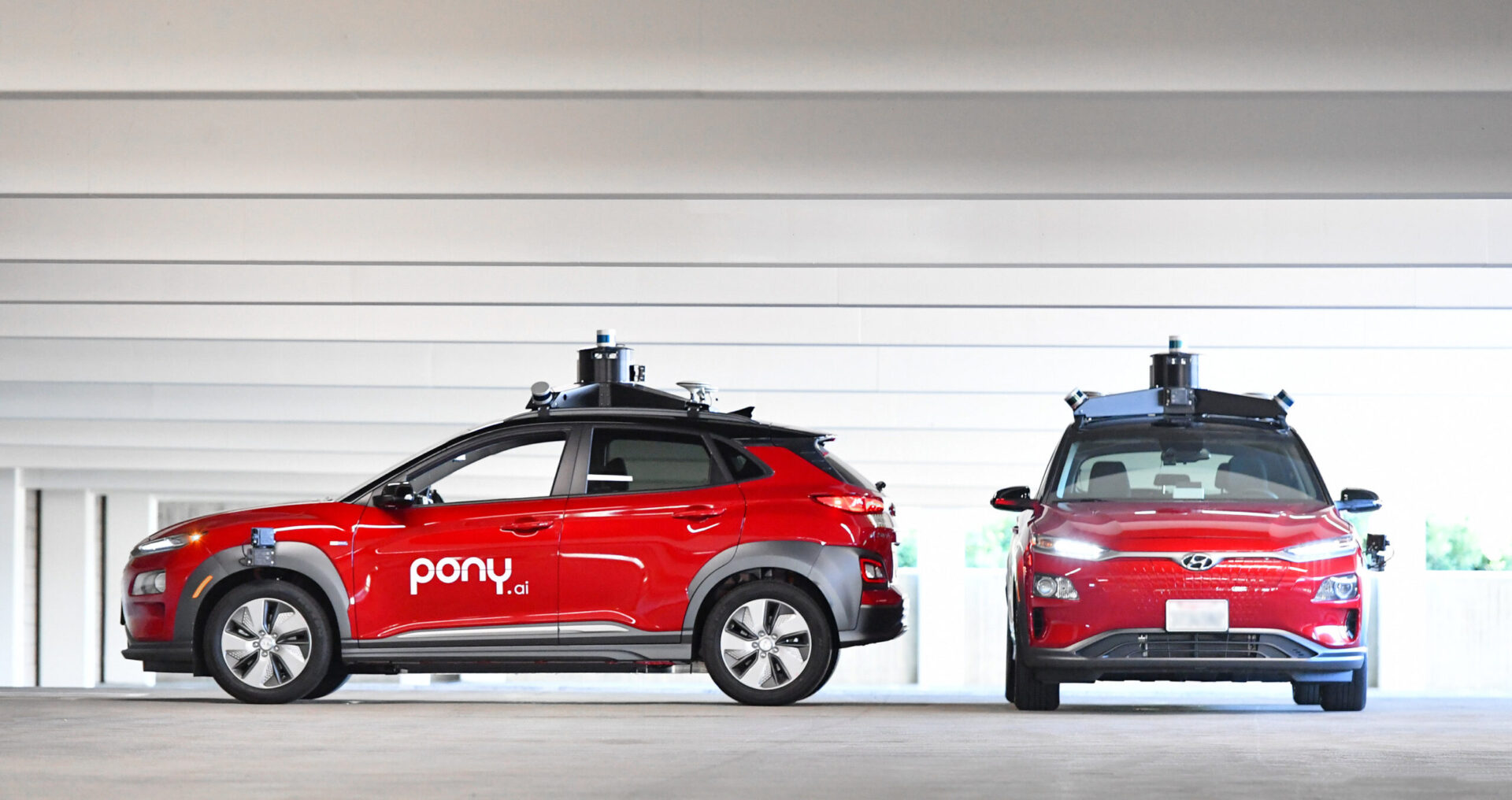Pony.ai, a prominent autonomous driving startup, emerged in 2016 as a frontrunner in the race to develop and deploy self-driving vehicles. Co-founded by James Peng and Tiancheng Lou, both veterans in the autonomous driving field, Pony.ai has made significant strides in advancing the technology and commercialization of autonomous vehicles. With its cutting-edge technology, strategic partnerships, and commitment to safety, Pony.ai has positioned itself as a key player in the autonomous driving industry.
The founders, James Peng and Tiancheng Lou, possess a wealth of experience and expertise in artificial intelligence, robotics, and self-driving technology. James Peng, the CEO of Pony.ai, previously served as the Chief Scientist at Baidu’s autonomous driving division, where he played a crucial role in the development of autonomous vehicle systems. Tiancheng Lou, the company’s CTO, also has a strong background in autonomous driving, having worked at Google’s self-driving car project (now Waymo) as a senior software engineer.
Pony.ai’s founding mission was to create safe, reliable, and accessible autonomous driving technology that could be integrated into everyday life. The company aimed to develop a full-stack autonomous driving solution that encompassed hardware, software, and AI algorithms to enable vehicles to navigate complex environments and make informed decisions in real-time. Pony.ai’s approach emphasized the importance of both technological innovation and operational deployment to achieve widespread adoption of self-driving vehicles.
In its early stages, Pony.ai focused on rigorous testing and validation of its autonomous driving technology. The company conducted extensive road tests in both the United States and China, collecting valuable data to improve its self-driving system’s performance and safety. These efforts resulted in the successful deployment of Pony.ai’s autonomous ride-hailing service in Nansha, Guangzhou, China, making it the first company to offer such a service to the public in the country.
Pony.ai has established strategic partnerships to further its technological advancements and accelerate the commercialization of autonomous driving. In 2018, the company formed a partnership with Guangzhou Automobile Group (GAC), one of China’s leading automobile manufacturers. This collaboration aimed to integrate Pony.ai’s self-driving technology into GAC’s vehicles, paving the way for the mass production and deployment of autonomous vehicles.
Safety has always been a top priority for Pony.ai. The company has implemented stringent safety measures, including redundant hardware systems, advanced perception technology, and rigorous testing protocols, to ensure the safe operation of its autonomous vehicles. Additionally, Pony.ai actively collaborates with regulatory bodies and government agencies to shape policies and regulations related to autonomous driving, contributing to the development of industry standards and promoting the responsible deployment of self-driving technology.
Looking to the future, Pony.ai continues to push the boundaries of autonomous driving technology. The company aims to expand its autonomous ride-hailing services to more cities and forge additional partnerships with automakers, tech companies, and mobility service providers. By refining its technology, enhancing safety measures, and building public trust, Pony.ai strives to accelerate the adoption of self-driving vehicles and reshape the future of transportation.
Founding Story and Founders of Pony.ai
Pony.ai has rapidly emerged as a trailblazer in the autonomous vehicle industry since its inception in 2016. Co-founded by James Peng and Tiancheng Lou, two renowned experts in the field of self-driving technology, Pony.ai has made remarkable progress in developing and deploying autonomous vehicles. With a strong commitment to technological innovation, strategic partnerships, and a relentless pursuit of safe and accessible autonomous driving, Pony.ai has established itself as a key player in shaping the future of transportation.
Founders’ Background and Vision
The journey of Pony.ai began with the convergence of talent and vision. James Peng, the CEO of Pony.ai, previously served as the Chief Scientist of Baidu’s autonomous driving division, contributing extensively to the development of autonomous vehicle systems. With a deep understanding of the industry and a passion for innovation, Peng aimed to create a company that could deliver safe and reliable autonomous driving technology to the masses. Tiancheng Lou, the CTO of Pony.ai, brought his expertise as a senior software engineer from Google’s self-driving car project (now Waymo). Together, they shared a common vision of making self-driving technology an integral part of everyday life.

The Pursuit of Technological Excellence
From its inception, Pony.ai embarked on a mission to develop a full-stack autonomous driving solution that encompassed hardware, software, and AI algorithms. The company’s engineers worked relentlessly to develop cutting-edge technology that would enable vehicles to navigate complex environments, make intelligent decisions, and ensure passenger safety. Pony.ai’s approach emphasized the importance of both technological innovation and operational deployment to achieve widespread adoption of self-driving vehicles.
Rigorous Testing and Validation
Recognizing the significance of real-world testing, Pony.ai conducted rigorous road tests in both the United States and China. These tests allowed the company to gather vast amounts of data and refine its self-driving technology. The iterative process of data collection, analysis, and system enhancement helped Pony.ai enhance the performance and safety of its autonomous driving system. The dedication to rigorous testing laid the foundation for Pony.ai’s pursuit of high-quality, reliable autonomous vehicles.
Pioneering Public Deployment
In a significant milestone, Pony.ai became the first company to offer a public autonomous ride-hailing service in China. In 2018, the company launched its pilot program in Nansha, Guangzhou, providing residents with access to autonomous vehicles for transportation. This pioneering move showcased Pony.ai’s commitment to transforming the way people travel and highlighted the potential of autonomous driving technology to revolutionize the mobility landscape.
Strategic Partnerships and Collaborations
To accelerate the commercialization of autonomous driving, Pony.ai forged strategic partnerships with key industry players. Notably, the company collaborated with Guangzhou Automobile Group (GAC), one of China’s leading automobile manufacturers, to integrate its self-driving technology into GAC’s vehicles. This partnership aimed to enable mass production and deployment of autonomous vehicles, bridging the gap between technological innovation and commercial viability.
Advocacy for Safety and Regulation
Pony.ai has consistently prioritized safety in its pursuit of autonomous driving technology. The company has implemented redundant hardware systems, advanced perception technology, and rigorous testing protocols to ensure the safe operation of its autonomous vehicles. Moreover, Pony.ai actively engages with regulatory bodies and government agencies to contribute to the development of industry standards and regulations related to autonomous driving. By advocating for responsible deployment, Pony.ai aims to build public trust and create a regulatory environment conducive to the widespread adoption of autonomous vehicles.
The founding story of Pony.ai reflects the vision, expertise, and relentless pursuit of excellence by its founders. From their collective experience in the autonomous driving industry, James Peng and Tiancheng Lou built a company focused on developing cutting-edge technology, forging strategic partnerships, and advocating for safety and responsible deployment. Pony.ai’s journey from a visionary idea to a leading autonomous driving startup showcases its potential to shape the future of transportation. With a commitment to technological innovation and a customer-centric approach, Pony.ai is well-positioned to continue driving advancements in the autonomous driving industry and revolutionize the way people travel.
Business Model of Pony.ai
Pony.ai is revolutionizing the transportation industry with its unique business model centered around the provision of autonomous mobility solutions geared towards serving individuals and enterprises. With roots firmly grounded in artificial intelligence and machine learning techniques, Pony.ai has rapidly gained traction and acclaim worldwide, swiftly becoming one of the leading players in the autonomous vehicle landscape. Here, we’ll explore Pony.ai’s intricate business structure in greater detail, delving into how its offerings contribute towards building an intelligent, connected transportation network accessible to everyone.
The Riding Experience
Pony.ai’s core service revolves around providing premium point-to-point riding experiences powered by state-of-the-art autonomous systems. Their fleet comprises luxury sedans equipped with meticulously designed interiors featuring spacious legroom, ample luggage compartments, and convenient charging ports for passengers to enjoy hassle-free transfers. With user comfort and satisfaction as top priorities, Pony.ai continuously gathers feedback from customers, fine-tuning every aspect of the riding encounter to achieve optimal results.
Their dedicated in-house design teams work relentlessly to engineer next-generation cabins that guarantee a memorable travel experience for anyone onboard. From climate control settings to ambient lighting configurations, Pony.ai strives to excel beyond traditional taxi or ride-sharing services.
Autonomous Fleet Management
Pony.ai understands that smart fleets require flawless maintenance strategies and optimized operation protocols to ensure maximum uptime. That’s why their proprietary Autonomous Vehicle Operating System (AVOS) acts as the central nervous system regulating all aspects related to fleet oversight and remote monitoring. Using sophisticated algorithms and AI-driven predictive analytics, AVOS analyzes crucial components, including battery charge levels, tire pressure, temperature readings, and powertrain diagnostics.
With continuous learning and adaptability built within this integrated management framework, Pony.ai can efficiently balance repair scheduling, proactive preventative measures, and even optimize routes based on current weather conditions, traffic updates, and other relevant factors impacting overall performance and reliability. The seamless integration of these modules within AVOS enables Pony.ai to maintain an efficient fleet without compromising on passenger safety or comfort.
Enterprise Solutions
Beyond catering directly to individual riders, Pony.ai has developed comprehensive enterprise packages tailored specifically for organizations seeking to leverage the benefits of cutting-edge autonomous technology. Understanding that corporate entities may have diverse needs, such as employee commute programs, event shuttling, or executive transportation demands, Pony.ai offers customizable propositions encompassing various forms of transportation services, whether it be large-scale carpool arrangements, VIP concierge facilities, or personalized charter programs.
Each plan is created after thorough discussions involving mutually agreed upon KPIs, allowing clients to make informed decisions about selecting Pony.ai’s services. This enterprise-centric approach permits Pony.ai to build enduring relationships with prominent firms across various industries, fortifying its presence as a trusted partner delivering high-quality, future-ready transport options.
Technology Licensing & Data Monetization
While Pony.ai primarily concentrates on developing exceptional autonomous mobility products for consumers and corporations alike, their technology development efforts extend far beyond those frontiers. They actively seek collaborations with like-minded companies and institutions aiming to advance the overall industry progress via joint research endeavors and knowledge sharing.
Additionally, Pony.ai’s accumulated wealth of data collected during millions of miles driven by its autonomous vehicles serves as valuable insights, which can be leveraged to create pioneering data-driven applications, services, and innovative revenue streams. By monetizing this vast trove of rich information gathered through advanced sensory perception mechanisms and refined data processing algorithms, Pony.ai helps accelerate growth opportunities not only within their ecosystem but also for third parties who might benefit from such rich datasets. These potential partnerships further solidify Pony.ai’s position as an industry leader committed to fostering cross-sector collaboration while ensuring sustainable business models amidst constant technological evolutions.
Global Expansion Plans
As an outward-looking organization, Pony.ai recognizes the importance of embracing global markets to expand its footprint and catalyze the introduction of innovative autonomy solutions. Since establishing operations in China, they have successfully navigated complex regulatory landscapes, deploying their driverless capabilities under diverse roadway, climatic, and cultural contexts.
The company’s aggressive international expansion plans include North America, Europe, Southeast Asia, and eventually other regions where urban populations are looking to adopt safer, more streamlined mobility alternatives. By replicating proven success stories from early adoption markets and tailoring them to suit distinct cultural preferences and infrastructural idiosyncrasies, Pony.ai seeks to become a preeminent provider of globally harmonious, self-driving solutions valued equally by passengers, communities, and governments alike.
Strategic Partnership Network
An essential factor contributing to Pony.ai’s rapid ascension involves constructing robust strategic associations with complementary business entities and visionary investment groups. Their extensive network includes notable venture capitalists, tech titans, and automotive heavyweights who share common aspirations for propelling the widespread acceptance of autonomous transportation. In recent developments, Pony.ai struck deals with leading auto parts supplier Denso Corporation and Chinese EV manufacturer Enovate, signaling their commitment to forming cross-industry synergies.
Future Mobility Solutions
Looking ahead, Pony.ai is exploring opportunities beyond ride-hailing services. The company is actively involved in developing autonomous delivery solutions, including last-mile logistics and on-demand delivery services. By leveraging their autonomous driving technology, Pony.ai aims to address the evolving needs of the mobility and logistics industries. This expansion into new sectors provides potential revenue streams and enables Pony.ai to diversify its offerings and market presence.
Pony.ai’s business model revolves around offering autonomous ride-hailing services, technology licensing, data monetization, research collaborations, and future mobility solutions. By combining these revenue streams, Pony.ai strives to establish a sustainable and scalable business that capitalizes on the advancements in autonomous driving technology. With a customer-centric approach, strategic partnerships, and a focus on innovation, Pony.ai is well-positioned to drive the future of autonomous mobility and create value in the rapidly evolving transportation industry.
Revenue Streams of Pony.ai
Pony.ai generates revenue through various streams that capitalize on its technological capabilities and strategic partnerships. Below are detailed explanations of Pony.ai’s revenue streams:
Autonomous Ride-Hailing Services: Pony.ai generates revenue by providing autonomous ride-hailing services. Through partnerships with ride-hailing platforms or by operating their own platform, Pony.ai allows users to book rides in autonomous vehicles. Customers pay for the transportation services, and Pony.ai collects a portion of the fare as revenue. This revenue stream leverages Pony.ai’s self-driving technology and demonstrates the commercial viability of their autonomous vehicle fleet.
Technology Licensing and Partnerships: Pony.ai enters into strategic partnerships with automakers, technology companies, and other players in the mobility industry. These collaborations involve licensing Pony.ai’s autonomous driving technology to be integrated into partners’ vehicles or mobility platforms. Pony.ai generates revenue through technology licensing agreements, royalties, or service fees. This approach allows Pony.ai to leverage the manufacturing capabilities and market reach of its partners, accelerating the deployment of autonomous vehicles and monetizing their technology.
Data Monetization: Pony.ai collects vast amounts of valuable data as its autonomous vehicles operate on the roads. This data includes vehicle performance metrics, sensor readings, traffic patterns, and user behavior. Pony.ai can monetize this data by offering it to third parties, such as urban planners, policymakers, or companies involved in traffic management. Data licensing or partnerships provide additional revenue streams as the data is used for training machine learning algorithms, improving safety systems, or developing more efficient autonomous driving solutions.
Research and Development Collaborations: Pony.ai engages in research and development collaborations with academic institutions, industry partners, and government agencies. These collaborations provide access to additional funding for research projects and enable the sharing of knowledge and resources. Collaborations may lead to joint development projects, research grants, or the acquisition of intellectual property rights. Revenue can be generated through research grants, licensing agreements, or co-development projects, while simultaneously enhancing Pony.ai’s technological capabilities.
In summary, Pony.ai’s revenue streams include autonomous ride-hailing services, technology licensing and partnerships, data monetization, research and development collaborations, and future mobility solutions. By diversifying revenue streams and capitalizing on their autonomous driving technology, Pony.ai aims to establish a sustainable and scalable business model that encompasses various aspects of the autonomous mobility industry.
Future of Pony.ai
The future of Pony.ai is filled with tremendous potential as the company continues to drive innovation and shape the autonomous driving industry. With its strong technological foundation, strategic partnerships, and commitment to safety, Pony.ai is poised to make significant contributions to the future of transportation.
In the coming years, Pony.ai aims to expand its autonomous ride-hailing services to new cities and regions, offering safe and convenient mobility solutions powered by self-driving technology. By scaling its operations and increasing its fleet size, Pony.ai can reach a larger customer base and demonstrate the viability of autonomous vehicles on a broader scale. This expansion will not only contribute to the growth of Pony.ai but also facilitate the gradual acceptance and adoption of self-driving technology in various urban environments.
Furthermore, Pony.ai is well-positioned to capitalize on emerging opportunities in the autonomous delivery market. As e-commerce continues to thrive and demand for efficient last-mile logistics rises, Pony.ai’s expertise in autonomous driving can be harnessed to revolutionize the delivery industry. By developing innovative solutions for on-demand delivery and partnering with logistics providers, Pony.ai can reshape the way goods are transported and make a significant impact on the efficiency and sustainability of the supply chain.
In conclusion, Pony.ai’s future is characterized by the expansion of its autonomous ride-hailing services, the exploration of new markets, and a focus on transforming the delivery industry. With its advanced technology, strategic approach, and continuous commitment to innovation, Pony.ai is well-equipped to play a prominent role in the future of autonomous transportation, making self-driving vehicles an integral part of our daily lives and revolutionizing the way we move goods and people.
Also Read: The Nuro Story: Unleashing the Potential of Autonomous Delivery
To read more content like this, subscribe to our newsletter




